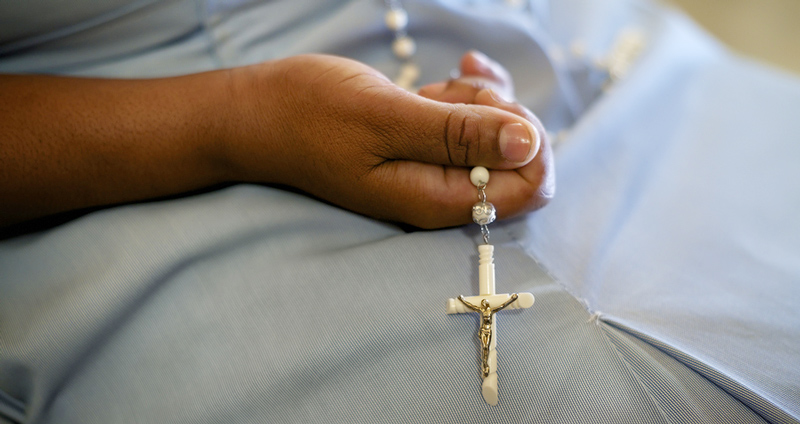
During Holy Week 2016, New York’s Cardinal Dolan posted a complaint about the fact that basketball’s March Madness included Good Friday games in which two Catholic universities would be competing. Apparently no one representing these two institutions of higher learning had blinked.
We probably should not be surprised. After all, we Catholics do all sorts of things (shopping, lawn care, laundry, car washing) which at one time were thought to violate the Sabbath. We notice that Catholics adorn their houses at Christmas with just as many Santas, grinches, reindeer, and snowmen as anyone else in their neighborhoods. At Easter, bunnies and trees hung with plastic eggs prevail.
Some recent statistics bear out the fact that the perceived irrelevance of religion is on the increase. The Pew Research Center’s Religious Landscape Study reported this past fall that 23 percent of Americans do not connect with any religious faith. Of the 77 percent who do, regular church attendance does not typically top their priority list. They simply indicate that they “identify” with a particular religious tradition.
Meanwhile, only 50 percent of young adults (born between 1990 and 1996) say they believe in God.
South Carolina can take some small comfort. The Pew studies say that in our state only 5 percent of adults feel sure that there is no God. But active involvement in a particular religious faith is far more iffy.
In South Carolina, 75 percent are sure there is a God, but only about half of them are regulars with a worshiping community. We can name many influences which have caused this attrition in the practice of faith. One is a culture which has eliminated God-talk from much public discourse and from tax-payer supported schools. Another is the influence of mass media, which downplays religion and at times ridicules it.
Another is the lack of stable family life and the absence of worship from family priority-setting. And, of course, there is the mistrust fomented by scandals.
There is, however, some cause for hope. News reports cannot eliminate references to God when they talk with survivors about getting through natural disasters, terrorist attacks, and crimes like the shootings last summer at Mother Emmanuel.
Our Catholic young adult groups, sprinkled across the state, are booming and growing. Our campus ministry retreats have been moving and effective. And now another boost is coming from a current best-seller.
The late Paul Kalanathi, a brilliant neurosurgeon who died of cancer before he turned 40, wrote “When Breath Becomes Air” as he was going through chemotherapy, a brief remission, and the birth of his daughter.
While writing about his own mortality, Kalanathi also offered some words of wisdom about faith. He related that he was raised in a religious, church-going Christian family but drifted, for a time, into scientific and philosophical atheism. In the midst of one of his last rounds of illness, he and his wife went to church with his parents.
Kalanathi began to reconnect with the gospels and finally came to the conclusion that if “science provides no basis for God, then you are almost obligated to conclude that science provides no basis for meaning and, therefore, life doesn’t have any.”
He also reasoned that a lack of meaning left no basis for love. His experience of family life, spousal love, conceiving a child, and being with people who had amazing recoveries as well as people who were dying made him resolute about the fact that life does have meaning and that love is genuine, though immeasurable. In the end, he recognized that life without God and life without a faith community left human beings very, very empty.
The fact that his reflections are being widely read may nudge some readers to reconsider their own practical atheism, agnosticism, or skepticism. Since Kalanathi himself wrote as a young man, we may hope that some of that 1990-1996 birth group pick him up, in hardcover or e-book. Perhaps they will even look at the YouTube post which shows a happy Dr. Kalanathi and his wife Lucy witnessing the baptism of their daughter.




